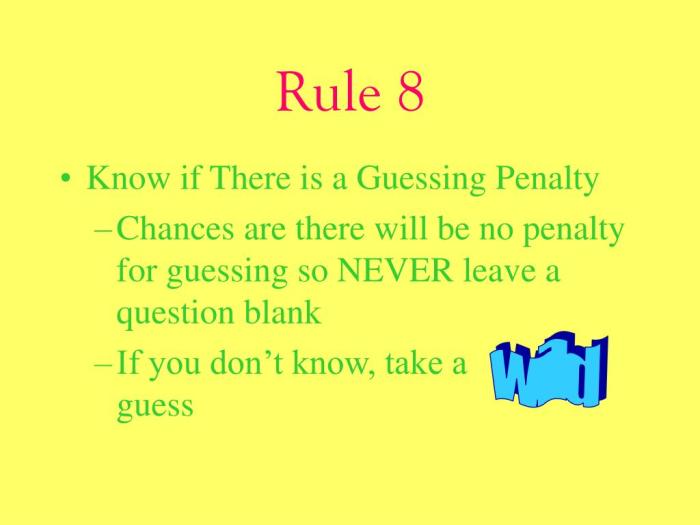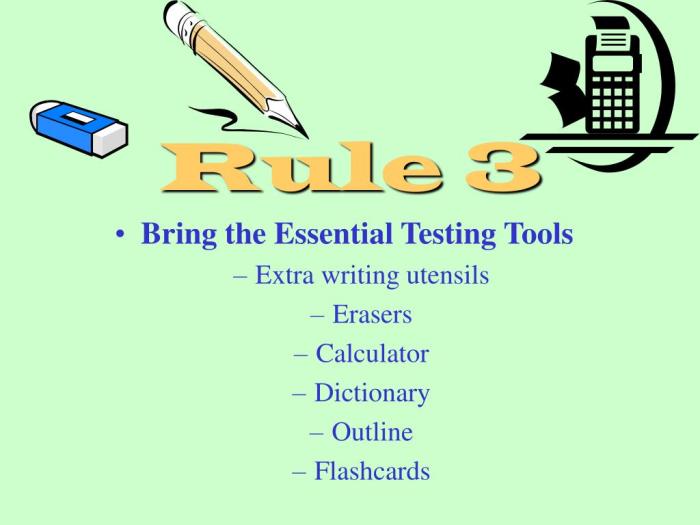All of these are rules of the test-taking game except: introducing an exploration of the boundaries and exceptions to the established norms in test-taking. Understanding these nuances is crucial for navigating the testing landscape successfully.
Test-taking involves adhering to specific guidelines and principles, but there are instances where deviating from these rules may be warranted. This article delves into the intricacies of test-taking rules, identifying situations where exceptions can be made and discussing the potential consequences of breaking them.
Test-Taking Rules: All Of These Are Rules Of The Test-taking Game Except:

Test-taking is a standardized process with established rules and guidelines to ensure fairness, consistency, and the accurate assessment of knowledge and skills. Adhering to these rules is crucial for maintaining the integrity of the testing process and ensuring that all test-takers have an equal opportunity to demonstrate their abilities.
General Principles and Guidelines, All of these are rules of the test-taking game except:
- Arrive on time and be prepared with necessary materials.
- Follow instructions carefully and ask for clarification if needed.
- Manage time effectively and allocate it wisely to different sections.
- Read questions thoroughly before answering.
- Write legibly and clearly, ensuring that answers are easy to read and evaluate.
- Avoid distractions and focus on the task at hand.
Exceptions to Test-Taking Rules
While it is generally expected that test-takers adhere to the established rules, there may be exceptional circumstances where deviations are acceptable or necessary. These exceptions include:
- When instructions are unclear or ambiguous.
- When a technical issue or malfunction occurs during the test.
- When a medical or emergency situation arises.
Strategies for Navigating Test-Taking Rules
To effectively navigate test-taking rules, test-takers should:
- Familiarize themselves with the rules and guidelines before the test.
- Practice time management techniques to ensure efficient use of time.
- Stay calm and focused throughout the test.
- Seek clarification from the test administrator if needed.
- Handle unexpected situations calmly and rationally.
Ethical Considerations in Test-Taking
Maintaining fairness and integrity in test-taking is of utmost importance. Unethical behavior, such as cheating or plagiarism, undermines the validity of the testing process and can have serious consequences. Test-takers should:
- Understand the consequences of unethical behavior.
- Report any instances of cheating or plagiarism they witness.
- Respect the rights and abilities of other test-takers.
FAQ
What are the most common test-taking rules?
Common test-taking rules include starting on time, following instructions carefully, and maintaining academic integrity.
When is it acceptable to break a test-taking rule?
It may be acceptable to break a test-taking rule in situations where following the rule would hinder the test-taker’s ability to demonstrate their knowledge or skills accurately.
What are the potential consequences of breaking a test-taking rule?
Breaking a test-taking rule can result in penalties such as a reduced score, disqualification from the test, or even academic misconduct charges.




